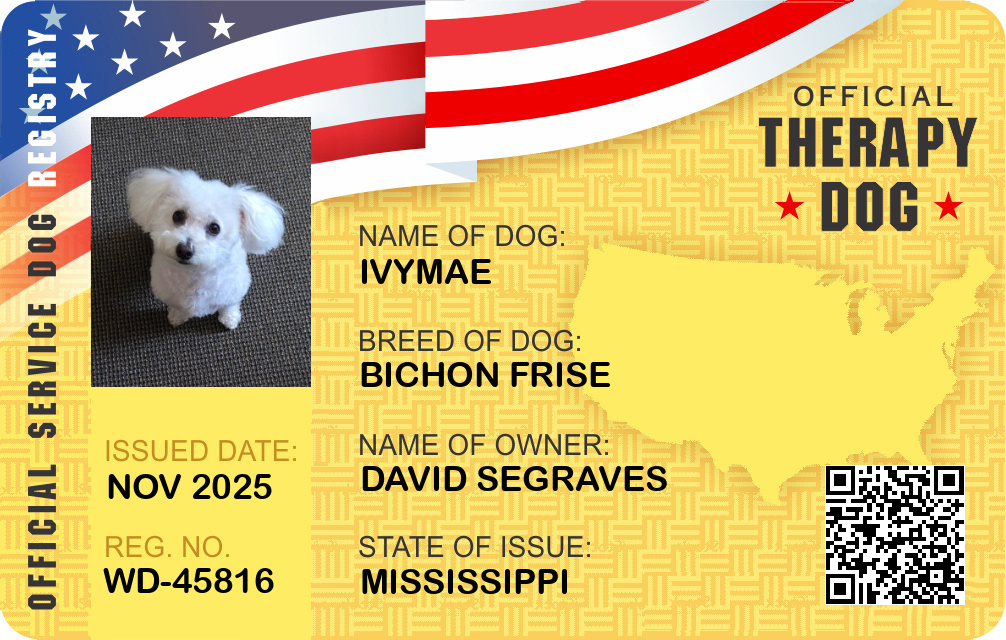Ohio Emotional Support Animal Laws

Overview of ESAs and Legal Definitions in Ohio
What is an Emotional Support Animal?
An Emotional Support Animal (ESA) is an animal that provides comfort and support to individuals diagnosed with psychological or emotional conditions. Unlike service animals, which are trained to perform specific tasks for their handlers, ESAs are primarily there to offer companionship that helps alleviate symptoms associated with emotional or mental health issues. The pivotal role of an ESA is not their proficiency in performing tasks but the therapeutic bond they share with their owner, which can be significant for individuals dealing with disabilities such as anxiety, depression, or PTSD.
How ESAs Differ from Service Animals
ESAs and service animals serve distinct roles and have different legal recognitions. Service animals, usually dogs, are trained to perform specific tasks that aid individuals with disabilities, such as guiding a person who is blind or alerting a person with diabetes of fluctuating blood sugar levels. In contrast, ESAs do not require specific training beyond offering emotional comfort. Legally, service animals are granted access to public places under the Americans with Disabilities Act (ADA), whereas ESAs are not provided the same level of public accessibility. This critical distinction has practical implications for owners concerning where their animals are permitted.
Key Federal Laws Affecting ESAs (e.g., FHA, ACAA)
Federal laws offer essential frameworks impacting the rights of ESA owners, particularly through the Fair Housing Act (FHA) and the Air Carrier Access Act (ACAA). The FHA mandates that housing providers must make reasonable accommodations for individuals with ESAs, allowing them to live with their emotional support animal without being subject to pet restrictions typically applied to conventional pets. The ACAA previously provided avenues for ESA accommodations in air travel, although recent regulations have changed. As of January 2021, airlines are no longer required under the ACAA to recognize ESAs as service animals, focusing instead on task-trained service dogs. Nevertheless, these federal guidelines provide a foundational understanding of how ESAs are to be treated, which states like Ohio build upon with additional specifications.
State-Specific ESA Laws in Ohio
Housing Rights and Responsibilities
In Ohio, ESA owners benefit from protections under the Fair Housing Act. Landlords are required to make reasonable accommodations for tenants with ESAs, irrespective of no-pet policies. However, tenants must provide proper documentation, such as an ESA letter from a licensed mental health professional. Landlords have the right to verify the authenticity of such documentation but cannot demand specific details about the tenant’s condition or charge pet-related fees for ESAs. If a landlord denies a valid accommodation request, it could be construed as an act of discrimination under the FHA.
Public Access and Accommodation
Unlike service animals, ESAs do not possess unrestricted public access rights in Ohio. They are not permitted in public places such as restaurants, stores, or public facilities where animals are typically prohibited. This limitation is grounded in the ADA, which reserves the term "service animal" for dogs trained to perform tasks directly related to a person’s disability. Therefore, ESA owners in Ohio must be cognizant of these restrictions and avoid misrepresenting their animals as service animals to gain entry into non-pet-friendly public areas.
Transportation and Travel Rules
Historically, the ACAA encompassed ESAs in federal travel regulations, granting them certain rights in commercial air travel. However, regulatory alterations now allow airlines to classify ESAs as pets with no special accommodations granted. Within Ohio's state jurisdiction, public transport like buses and trains does not afford special access rights to ESAs. Owners must check with each transportation provider for their specific policies. ESA owners traveling with their animals must prepare for potential fees and access limitations, pivoting travel plans as necessary to align with each service provider’s regulations.
Employment and Workplace Considerations
Under the current legal framework in Ohio, there is no obligation for employers to accommodate ESAs in the workplace. The ADA extends its protections only to service animals. However, some progressive employers may voluntarily choose to allow ESAs if it contributes to an employee’s productivity and well-being. ESA owners aiming to bring their pet to work should engage in direct negotiations with their employer, presenting clear documentation from a licensed healthcare provider if required.
Documentation, Requirements, and Processes in Ohio
ESA Letters and Who Can Issue Them
An ESA letter is a crucial document that certifies
Register Your Dog Instantly
an individual’s genuine need for an emotional support animal. In Ohio, such documentation must be issued by a licensed mental health professional, which might include psychologists, psychiatrists, social workers, or licensed counselors. The letter must articulate the individual’s need for the ESA, which aids in the accommodation process for housing or negotiation with employers. It should be current, generally renewed annually, and should not disclose specific diagnoses but affirm the therapeutic necessity of the ESA.Registration, Certifications, and Common Misconceptions
There is no formal registry for ESAs sanctioned by Ohio State or federal law. Many websites purport to offer "official" ESA registration or certification, but these are often misleading and not required for an ESA's legal recognition. What is fundamentally necessary is a legitimate ESA letter, not inclusion in these unofficial databases. ESA owners should be wary of these misconceptions and understand that, legally, only proper documentation from qualified professionals is needed.
Landlord, Business, and Provider Verification Rules
In Ohio, landlords can demand verification of an ESA's legitimacy through examining an ESA letter for authenticity. However, landlords cannot require tenants to divulge specific details concerning their mental health conditions. For businesses where ESAs are permissible, similar procedures may be enacted, focused primarily on the verification of need rather than the specifics of the disability or psychiatric condition.
Rights, Limitations, and Legal Risks
Rights ESA Owners Have in Ohio
ESA owners in Ohio have specific rights under federal housing laws, ensuring their animals can reside with them in housing that would otherwise have pet restrictions. They can also request reasonable accommodations in various settings provided adequate documentation is supplied. However, these rights do not extend to public accommodations or transit systems under Ohio law.
Limits on ESA Protections and Common Restrictions
The regulatory landscape in Ohio limits ESA accessibility primarily to housing, as opposed to wider public spheres. Ohioans with ESAs must navigate restrictions on public transport accessibility and workplace admittance, which largely remain the discretion of individual employers and service providers. ESAs are neither recognized as service animals nor provided equivalent legal rights in most non-residential environments.
Penalties for Fraud or Misrepresentation
The misrepresentation of an ESA as a service animal is considered fraudulent in Ohio and can lead to legal consequences. Such actions undermine the integrity of legitimate service animal protections and can incur fines or penalties upon discovery. ESA owners are encouraged to represent their animal sincerely, adhering to mandates that preserve both their rights and broader public trust.
Practical Guidance for ESA Owners in Ohio
How to Qualify for an ESA Legitimately
To qualify for an ESA in Ohio, individuals must have a professionally diagnosed emotional or mental health condition whereby an ESA provides beneficial support. A legitimate ESA letter from a licensed mental health professional should be procured to validate this need, reviewed periodically to remain current.
How to Talk to Landlords, Airlines, and Employers
When communicating with landlords, employers, or airlines concerning accommodations for an ESA:
- Prepare a current ESA letter to substantiate your request.
- Respectfully explain the role of your ESA in your therapeutic process.
- Acknowledge policy limitations and work cooperatively to achieve a reasonable solution.
- Be open to sharing only necessary information without disclosing private medical details.
Tips for Avoiding Scams and Legal Problems
- Avoid services offering "certifications" or "registrations" as these have no legal standing.
- Ensure ESA letters come from licensed mental health professionals to maintain credibility.
- Stay informed about current policies, especially regarding travel, as these can change.
- Represent your ESA accurately—understanding its limitations enhances compliance and reduces disputes.
Summary of ESA Laws in Ohio
**
- ESA ownership grants federal housing protections but is limited in public and travel domains.
- No official ESA registries exist; relevant documentation comes from licensed health professionals.
- Misrepresentation carries legal risks; transparency and adherence to regulations are crucial.
- Rights are predominantly focused on housing; limitations prevail in public and transportation arenas.
- Consultation with legitimate professionals optimizes both compliance and the therapeutic benefit of ESAs.
**











